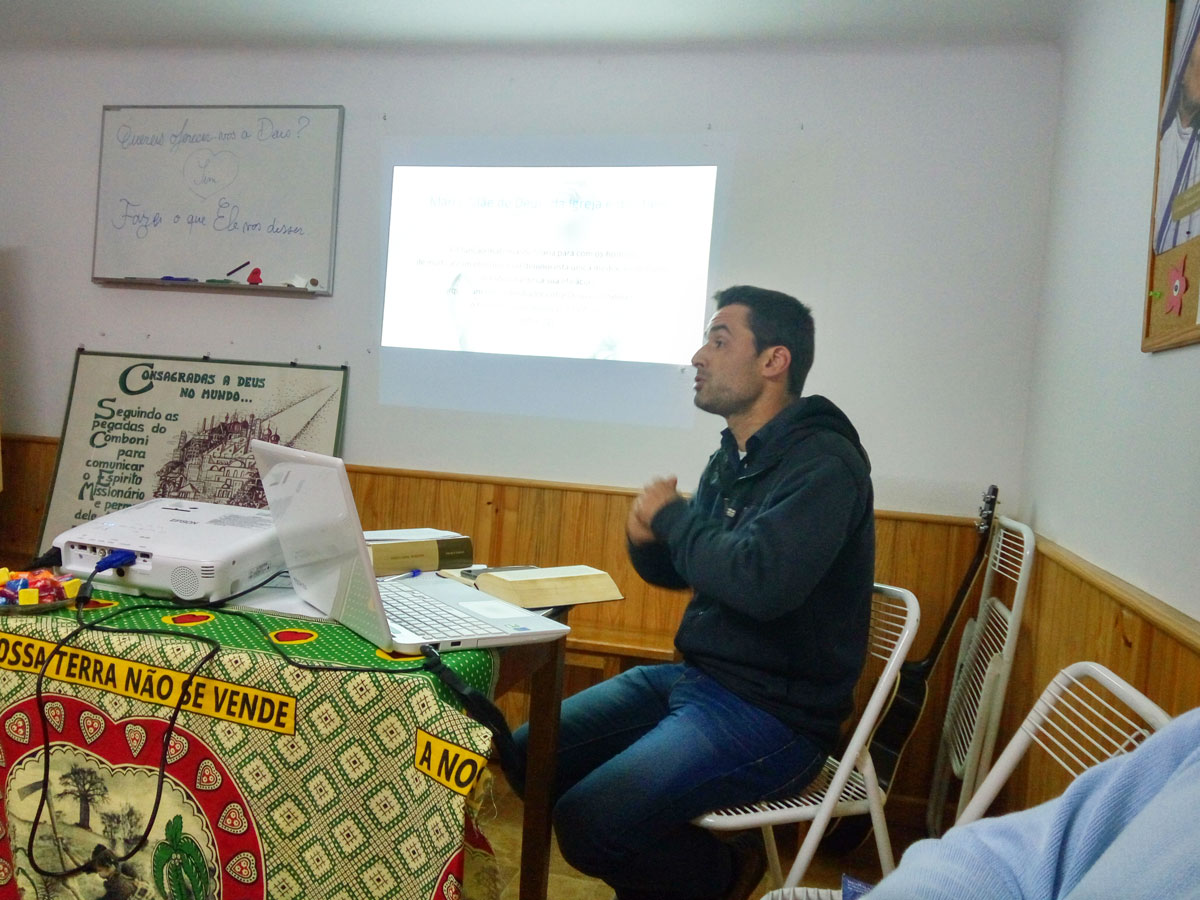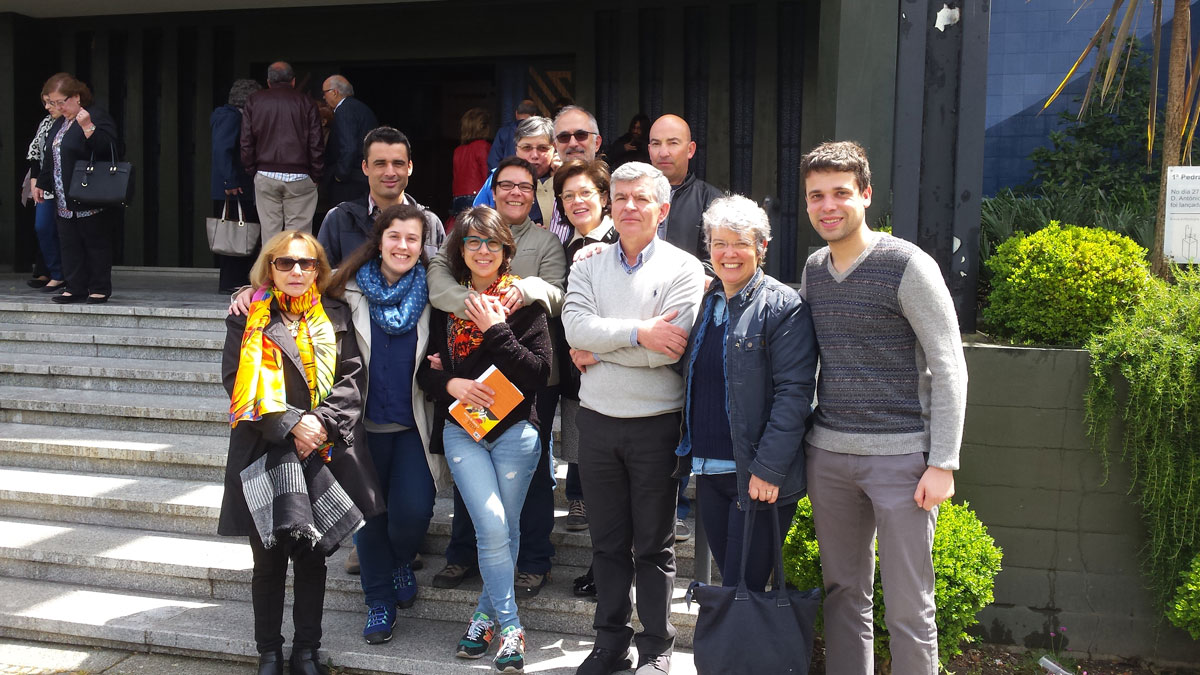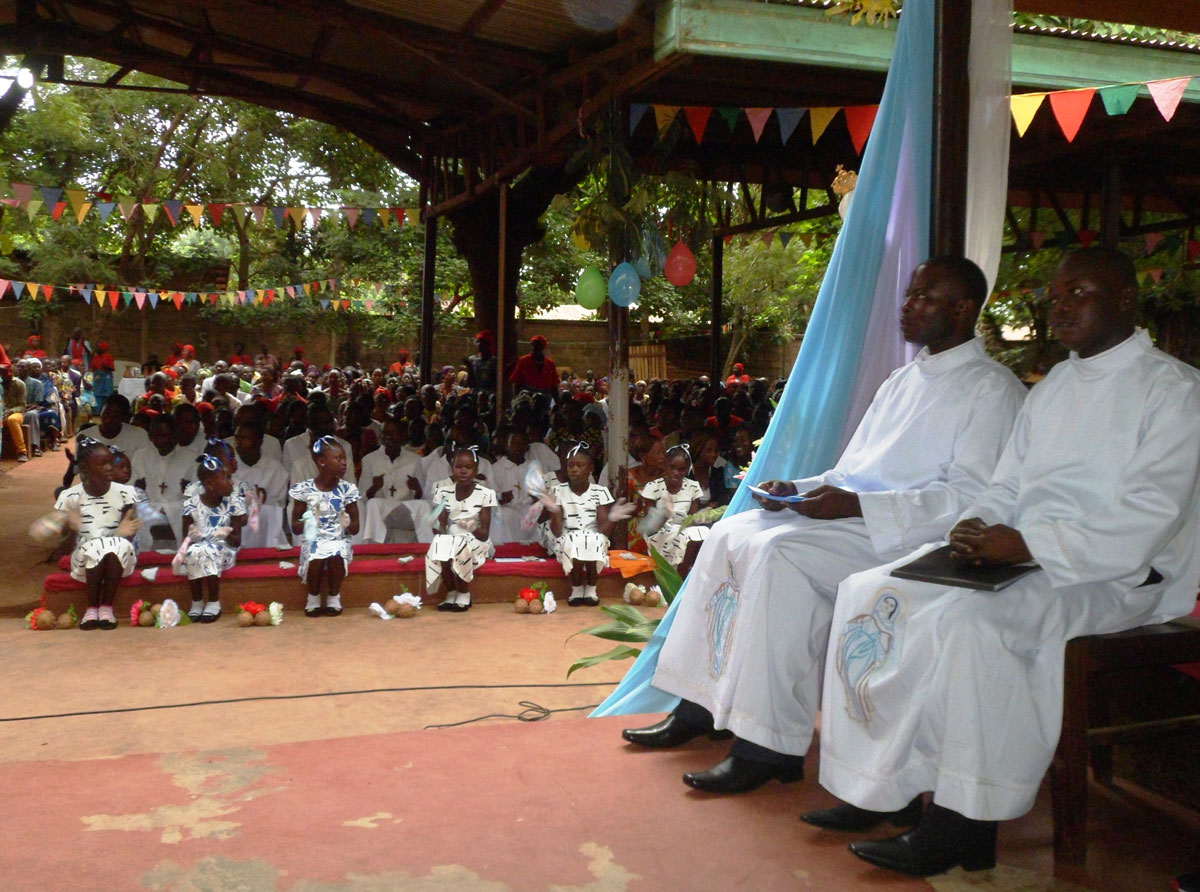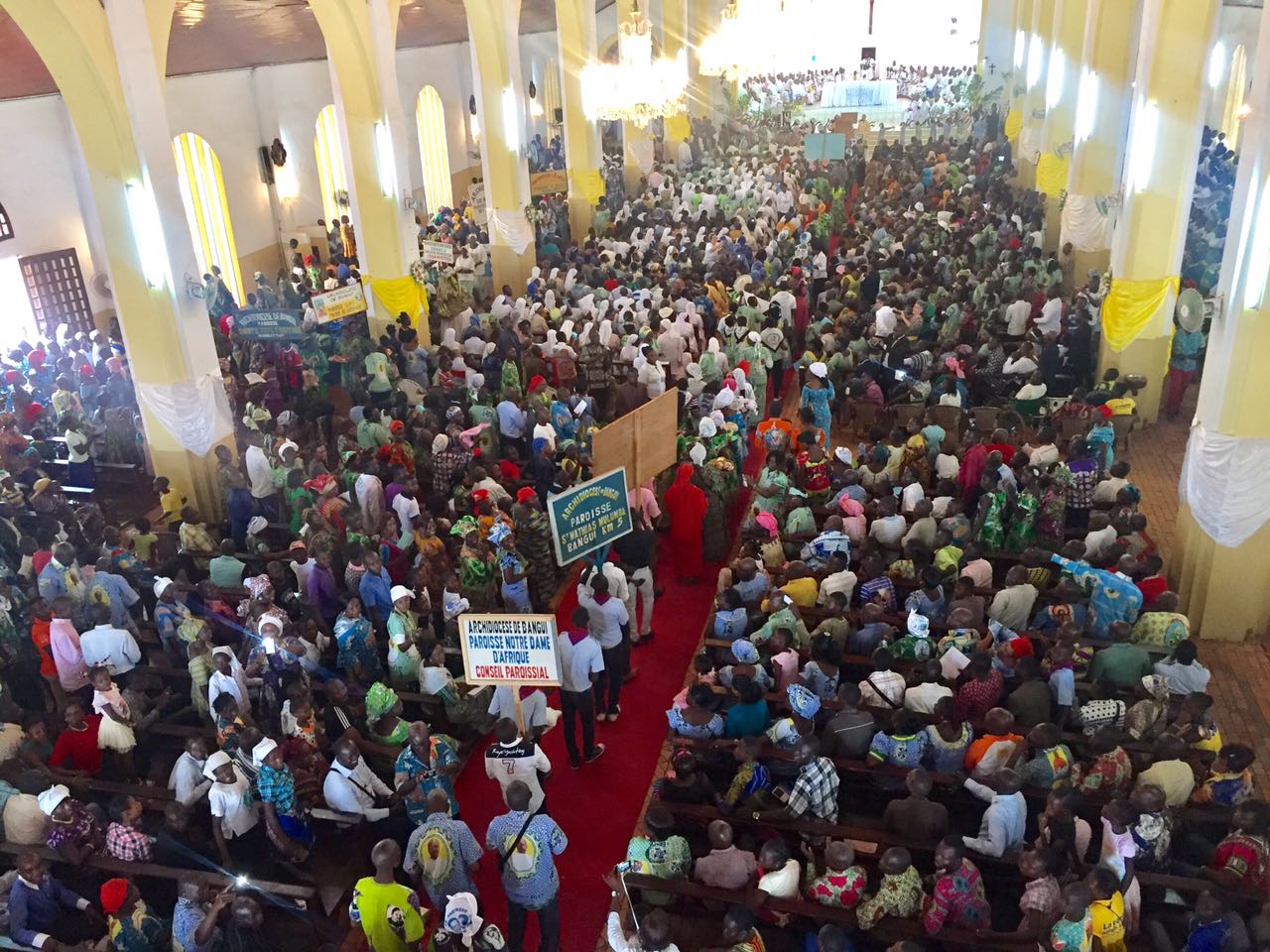 On April 29-30, 2017 we were very kindly welcomed in the house of the Secular Comboni Missionaries in Oporto, Portugal, where we held the 8th formation session of the CLM with the theme, “And you, Mary, what do you tell us about mission?” The CLM Pedro Moreira moderated the session.
On April 29-30, 2017 we were very kindly welcomed in the house of the Secular Comboni Missionaries in Oporto, Portugal, where we held the 8th formation session of the CLM with the theme, “And you, Mary, what do you tell us about mission?” The CLM Pedro Moreira moderated the session.
The meeting started on Friday evening with the arrival of the participants. For me in a special way it was a time of reconnection that filled my heart with joy, for being once again with people who are a family on a journey. Each one of us is a true gift of God and proof that “there is no distance or separation.”
The theme that was discussed during the entire day on Saturday and on Sunday morning was: “Do you want to offer yourselves to God?” This is the same question that Our Lady asked the three little shepherds of Fatima. It was also our initial question in order to know where we were headed and as a constant point of reference.
With the help of the “Treatise on the True Devotion to the Most Holy Virgin” of St. Luis Maria Grignion de Montfort and the Encyclical “Redemptoris Mater” of St. John Paul II, Pedro Moreira guided us and giving us his witness of simplicity, the beauty of his intimacy, devotion and love in and for Mary, our Mother.
“The more we delve deeply into Mary, the more we are missionaries.” This is one of the statements that resonate with me and that stirred me during the meeting.
Through our group work we meditated on the word of God looking for the missionary virtues of Mary. It was an opportunity to rediscover how missionary Mary was, from the moment of her “Yes up to Jesus Crucified who, from the cross, gave her to us as Our Mother, making her renew her “Yes” win obedience, fidelity and confidence in God’s will. All for the greater glory of God.
We had times of personal reflection that allowed us to deepen our relation with Our Lady and helped us to be missionaries like Mary.
“She was perplexed by these words.” (Lk 1:29)
And I? How do I react to the voice of God resounding in my soul? Especially when I know what the correct path is, but lack the courage to follow it…”
“To be missionaries demands that we be aware of our smallness and frailty, because that is where God manifests himself.”
“It is from the inside that Mary works at our own conversion. The proclamation of Jesus is deeply intimate, because in it the love of God for us and our eternal destiny are revealed.”
“Blessed is she who believed that what was said by the Lord would come to pass.”
I pass on to you these quotes that touched me, stirred me, as I realized how much I need to grow in my relation to Mary. Mary is the path of love towards Jesus. Who knows the son better than his own Mother? And if we follow those we love, and only love those we know, this is the path we are called to walk as missionaries.
As a community we prayed the rosary, offering our intentions and entrusting ourselves to the Immaculate Heart of Mary, Queen of hope and of peace. We remembered the Consecration of Africa made by St. Daniel Comboni to the Virgin of La Salette: “O Mary, show yourself to be the queen also of the poor Africans. At this moment, I, their father and missionary, place them at your feet, that you may place them all in your heart. Show that you are the Mother!” (SC 1639-1644)
On Saturday evening we watched the movie, “Mary, daughter of your Son,” that shows the fundamental role of Mary in the work of her son Jesus, which she accepted without understanding it, trusted and hoped faithfully, uniting her life to the mission and the divine reality of her son.
On Sunday we had further occasions to reflect on the dimension of “Us and (in) Mary,” as children of Mary, through a meditation on the biblical story of Rebecca and Jacob.
We concluded our meeting by attending the Eucharist in the parish of Our Lady of Areosa, where we had the opportunity at communion to put into practice the devotion suggested by St. Luis Maria Montfort, because the more we let Mary act through communion, the more will Jesus be glorified.
I am very grateful for this time and for the participation of all!
“Those who do not have Mary as a Mother, will never have God as a Father,” said St. Luis Maria Montfort.
May the charism and the faith of St. Daniel Comboni continue to be our example in this journey as a Comboni Family, so as to be humble missionaries. I leave you with this quote from Comboni’s act of consecration of Central Africa to Our Lady of the Sacred Heart, made on December 8, 1875. Let us pray together:
“And you, O Mary, O Virgin of the Sacred Heart of Jesus, protect us, your poor children, keep us safe as your inheritance and property.
Be our guide as we travel, our teacher in our doubts, our light in darkness. Be our health in sickness, our advocate, our mother near the Heart of your blessed Son Jesus throughout our life.”
CLM Portugal











